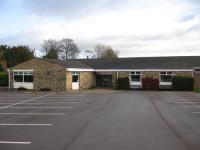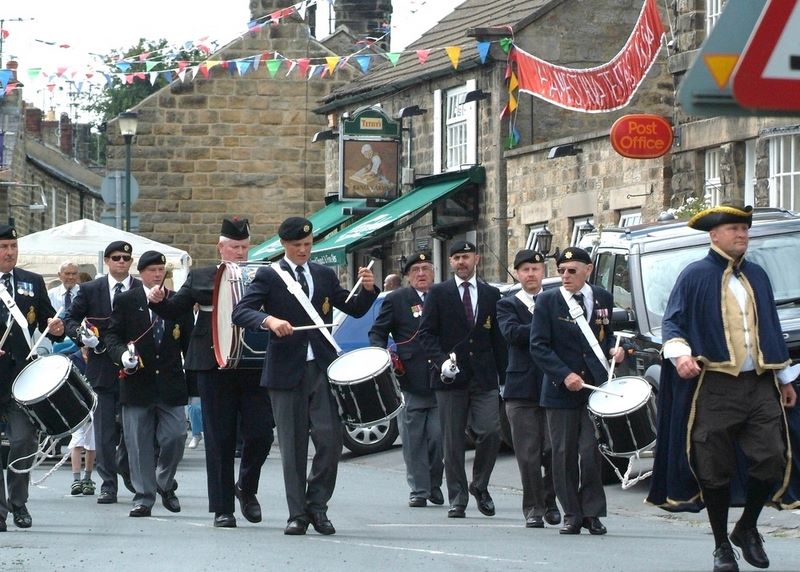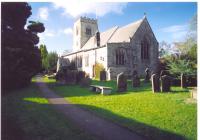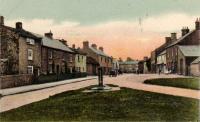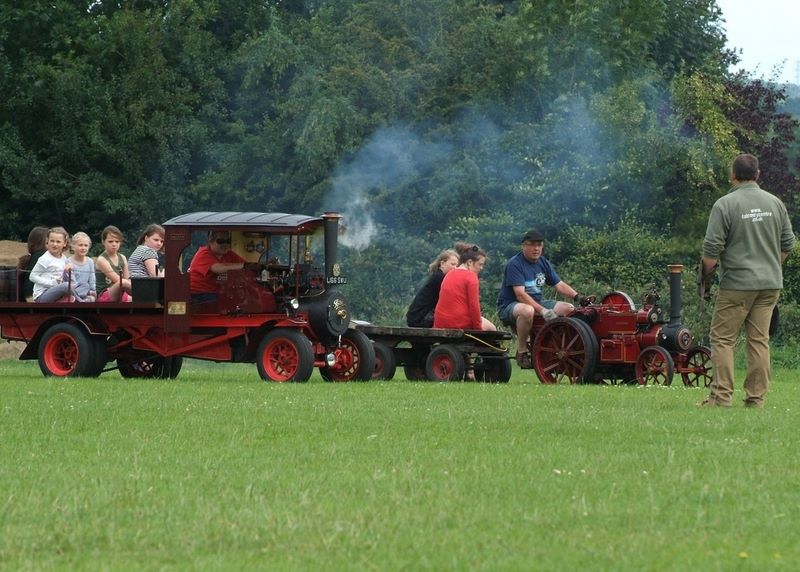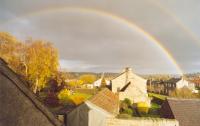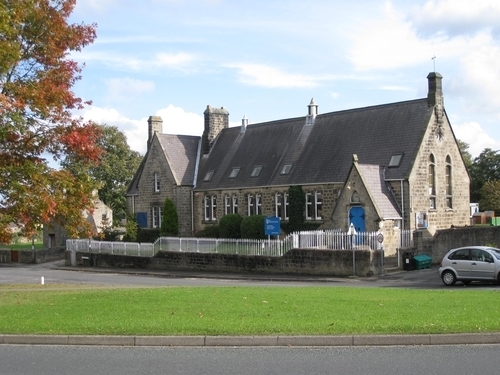Recent articles
© DT Online 2010 - 2025
| Greenside House (formerly Rose Villa)On the 8th June 1864 Richard Dearlove, a farmer then living in Kirby Malzeard, sold to William Robinson (also a farmer and then living in Hampsthwaite) for £185 the "dwellinghouse situate in the centre of the village (of Hampsthwaite) with a garden and paddock containing half an acre or thereabouts together with a stable barn and other outbuildings . . . . . at some time since staked out bounded on or towards the east by a hedge made by Thomas Metcalfe dividing the same from the adjoining Garth in a direct line from the east corner two yards west of the nearest oak tree now or lately growing in the hedge next the land late of the Reverend Heneage Elsley on or towards the west by the land late of Robert Gilbertson on or towards the north by the lands late of the aforesaid Heneage Elsley and on or towards the south by a road . . . . " . Richard Dearlove had inherited the property from his father Ralph who died in 1850 and the property was at the time tenanted by one James Dalby. Robinson died in 1876 leaving the property in his will to his three nephews (again, farmers living in Hampsthwaite and Felliscliffe) and they sold it on 20th December 1876 to Jonathan Johnson, a batchelor of West Hartlepool, for £600. The property was said to include an adjoining cottage used as a surgery and census records confirm that the house was now occupied by a medical practitioner (Richard Veale). The trebling in the value of the house in the space of 13 years at a time of more stable property prices may indicate that some improvements of the property had taken place or that it had been expanded in some way. The other outbuildings mentioned were the stable and coach-house. Further research is necessary to establish what had changed. The Veale family had by 1881 removed to Harrogate. During the decade they had lived in Hampsthwaite six children were born, one of whom, Laura Sobey Veale (1867-1963), later became the first Yorkshire woman to become a doctor. Laura’s father, Richard, was succeeded in the tenancy of Rose Villa by another doctor, Frederick Saunders who, by 1891, himself removed to what is now Thimbleby House in Church Lane. The next sale of the property occurred on 14th June 1909 when it was conveyed by Johnson's executors (Johnson had died in 1889) to Robert and Mary Exley of Swan Road Harrogate for £595 to include "the adjoining cottage". This seems to be a reference to "Laurel Cottage" and this may be the "surgery" used by Neale and the (possible) acquisition of which contributed to the increase in value in earlier years. It is said that until recent building works at Laurel Cottage there remained evidence of a connecting door or passage through to the house. In 1910 the property was surveyed for the purpose of assessing liability to Land Tax. At that time Greenside House (however it was then known) was one property with Laurel Cottage (which it is assumed had no separate name) and the surveyor described it thus… Robert Exley was a coal merchant and we cannot yet establish if he occupied the house but we know he mortgaged it in December 1909 to Lucy Hartley of Otley and that the mortgage was not repaid until after his death (in 1910) when the property was sold again on 10th October 1919 to William Ernest Lightfoot of Halifax for £850. The occupants of the house were then Walter Baxter and Joseph Brown. Later in October 1919, Lightfoot purchased for £150 an additional piece of garden and outbuildings from William Sheepshanks (son of the Reverend Thomas, a local landowner) and in subsequent mortgage transactions we see a plan showing that plot and also describing the house as Rose Villa and the cottage as Laurel Cottage. On 27th May 1953 William Lightfoot (now retired) sold Laurel Cottage to Norman Harry and Dorothy Selina Wooler and later, on the 24th June sold (for £3560) Rose Villa to Harold William Robinson, an insurance official living in Hindhead, Surrey. In October 1953 planning permission was granted for the conversion of the coach-house into a cottage and in 1955 permission was obtained from the Parish Council for the creation of a vehicle crossing over the verge separating the house from the road. The house was next sold on 27th July 1962 to Richard Gardner of Sheffield for £5200 . . . . .  . . . . . and after he died (in 1978) sold on to Anthony Brooke a retired tea merchant living in Ramsgill. He paid £45,000 on 2nd July 1979. Planning consents followed. . . . .
Mrs Brooks died at Greenside House in 1988 and in about May of 1990 her husband moved to Moreton-in-Marsh and sold the property. A postscript . . . . . It was Mr Gardner who granted in 1967 a way-leave for the siting of the Grade II listed telephone box on the verge outside the house - now a much treasured part of the village scene. The view west obtained through the entrance way at the side of the house is identified as a "Key view" by Harrogate Council in its discussion of the Conservation Area. Mr Brooke is believed to have been a nephew of the owners of Brooke Bond Tea. He served during the Second World War as a bomb aimer in the RAF. Subsequently he became manager of the British Olympic Bobsleigh Team and stayed for 12 years during which the team won the four-man gold medal. He also owned a Vauxhall Villiers hill-climbing car, racing it in 1977 by which time he was certainly in his late seventies. A few old views . . . . . In this photograph we can see the original central doorway in use as such and the front boundary lined by a hedge and a handsome row of iron railings (no doubt, removed during the 1939-45 War). And an aerial photograph from 1952 in which the outbuildings now removed can still be seen in the garden area. For details of some early census returns please click here . . . . . |









